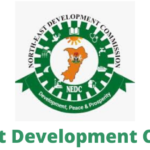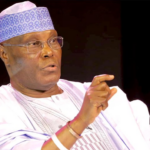The death of Chadian President Idriss Deby, last week while leading his troops against rebels in the northern part of the country has not only created a leadership vacuum in the country, but has created further uncertainty in the on-going war against insurgent groups in the Sahel region of Central and West Africa.
As leader of Chad, Deby was a key figure in the concerted effort by countries in the Lake Chad region to defeat the scourge of insurgency ravaging the area by non-state groups such as Boko Haram and ISWAP. His country, Chad, strategically situated at the junction between the central and western parts of the continent is constantly subject to waves of insurgent activity from all sides of its borders.
- How Boko Haram survives on weapons stolen from Nigerian military
- Malaria still killing Nigerians in droves
Alive to such unrelenting threats to the stability of his country, Deby was oftentimes seen personally leading the battle to keep the rebels at bay as he most notably did, not too long ago against Boko Haram terrorists, which resulted in the death of hundreds of their fighters.
In this endeavour, Chad became both the epicentre and security buffer for the countries around namely Nigeria, Niger and Cameroon, a development which enables concerted efforts to be mounted by these countries to roll back the insurgent groups.
This death, therefore, is a huge loss and we condole with the people of Chad. We urge them to remember all that Deby did to protect and keep the country safe. The fight against insurgency has indeed been dealt a huge blow by this death and what immediate steps are taken will determine the future in that regard.
Of concern also is the situation within the country, because it is only a stable Chad that can provide the buffer that is needed. Although, the country’s military command has appointed Deby’s son, General Mahamat Kaka Deby, to replace his father as leader of the country, there are bound to be ripple effects. By the country’s constitutional order of succession the Speaker of the Chadian parliament should be the one to fill the leadership void created by the death of Deby. The appointment of General Mahamat Deby as leader of Chad, therefore, effectively means the country is now into full blown military rule as indeed civil democratic structures have been suspended.
This will certainly exacerbate tension in the country and fuel further civil dissent. Already, the rebels in the northern part of the country, fighting the government have vowed to carry on regardless.
Chadian democracy has been fitful at best, though late President Deby, himself a military leader had gradually introduced some reforms. There was hope that with time the political space in Chad will open up to accommodate all shades of political opinion.
Chad will likely face uncertainties in the coming weeks and months and this should be viewed with great concern in the countries neighbouring Chad, especially Nigeria. Apart from losing a valuable partner in the fight against terror and insurgency in the North-eastern part of the country, Nigeria faces the possibility of being swamped by refugees fleeing an unpalatable situation in Chad. This will cause further humanitarian crisis in an area already stretched by prevalence of Internally Displaced Persons (IDPs).
There is also the distinct possibility that insurgent groups like Boko Haram who have had their noses bloodied and their wings clipped by Deby, will be emboldened to up the ante resulting to more of their murderous activities.
In this regard, we recommend strongly that the joint efforts to combat insurgency under the auspices of the Multinational Joint Task Force (MNJTF) led by Nigeria, of which Chad is a key part must under no circumstance be allowed to go asunder. We call for immediate and robust engagement with the new leadership in Chad, in order to encourage them to stay the course. Part of that engagement must be to get the new leaders in Chad to commit to a return to civil constitutional order within a reasonable time frame.
Nigeria must show keen interest and monitor the developments in Chad. It needs to step in and provide all necessary assistance to ensure that the country remains stable. This should be done in conjunction with the African Union (AU) the Central African Union and the Economic Community of West African States (ECOWAS).

 Join Daily Trust WhatsApp Community For Quick Access To News and Happenings Around You.
Join Daily Trust WhatsApp Community For Quick Access To News and Happenings Around You.


